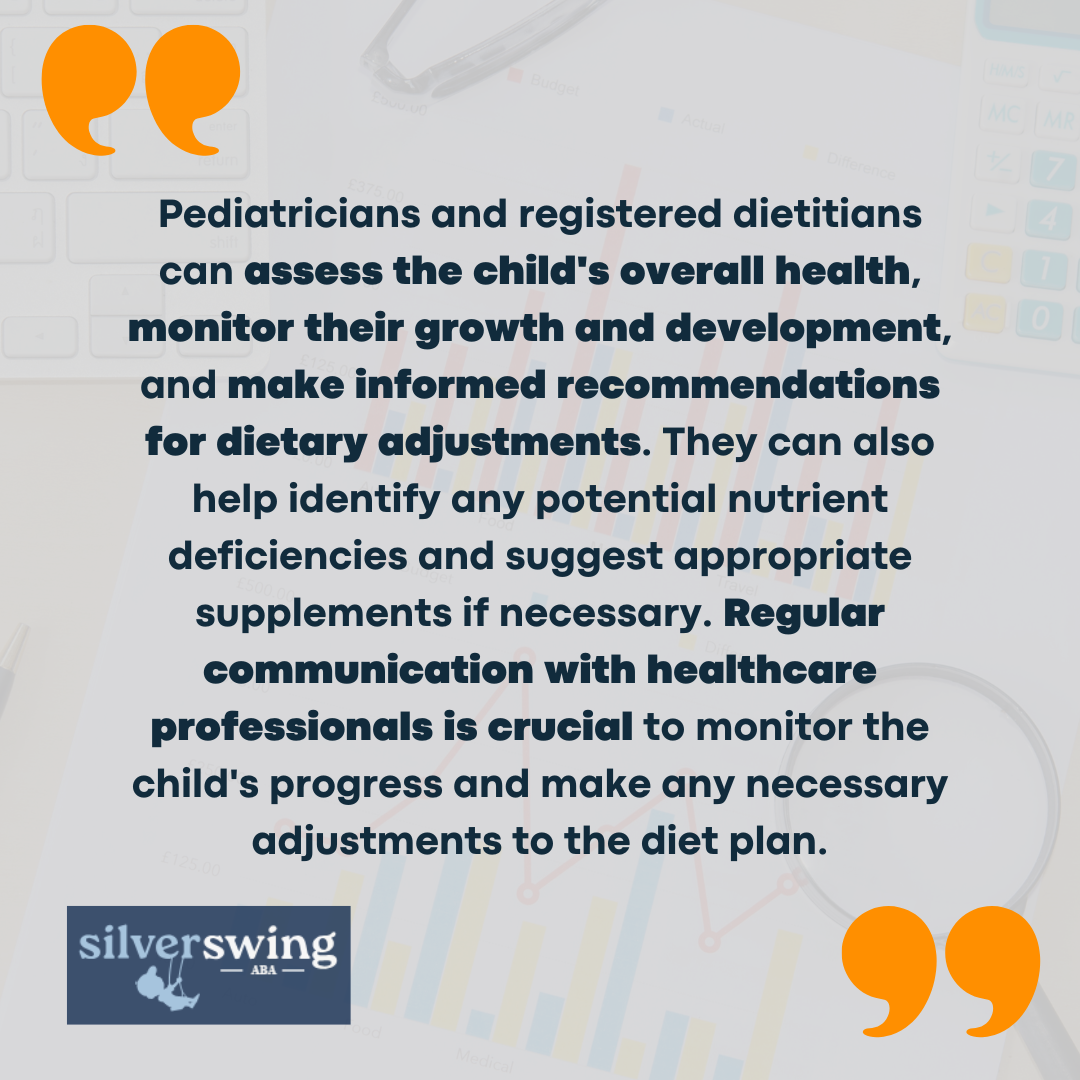The diet of an autistic child, especially picky eaters, can have a significant impact on their behavior, cognition, and overall functioning. Research suggests that certain nutrient insufficiencies in autistic children may contribute to issues related to brain development, bone growth, and muscle strength.
For example, low calcium and protein levels can affect physical development, balance, and cognitive abilities.
Autistic children may also have sensory issues that affect their food preferences and aversions. Texture and temperature sensitivities can lead to a limited diet, which may result in inadequate nutrient intake.
It is important for parents and caregivers to employ strategies to encourage a diverse and balanced diet, with the guidance of healthcare professionals, to ensure that children receive the necessary nutrients for optimal growth and development.
This brings the question: What’s the best diet for an autistic child? That’s exactly what we’re going to find out.

Nutrient Deficiencies in Autistic Children
Various studies have identified nutrient deficiencies in children with autism.
Common deficiencies include fiber, folic acid, calcium, iron, zinc, and vitamins A, C, D, E, K, B6, and B12. These deficiencies can be attributed to specific food preferences or obsessions that limit their intake of foods rich in these nutrients.
Addressing these nutrient deficiencies is crucial for supporting the overall health and well-being of children with autism.
Providing a well-rounded diet that includes a variety of nutrient-dense foods is important. In some cases, dietary supplements may be recommended to ensure that children with autism receive adequate levels of essential nutrients.
One specific nutrient that has shown promise in supporting the brain health and overall well-being of children with autism is omega-3 fatty acids. Omega-3 fatty acids play a vital role in brain development and function. Autistic children may have lower levels of omega-3 fatty acids compared to their neurotypical peers.
Including omega-3-rich foods or supplements in their diet, such as fatty fish like salmon and sardines, chia seeds, flaxseeds, hemp seeds, and walnuts, may be beneficial for their brain health and overall development.

Specialized Diets for Autism
There are certain specialized diets that have gained attention for their potential benefits in managing the symptoms of autism. These diets focus on eliminating or reducing specific food components that may exacerbate symptoms or contribute to nutrient imbalances.
Here, we explore four specialized diets that have been commonly used for individuals with autism.
Gluten-Free/Casein-Free Diet
The gluten-free/casein-free (GF/CF) diet involves the elimination of gluten (found in wheat, barley, and rye) and casein (found in dairy products) from the diet.
It has been suggested that this diet may help reduce symptoms in some individuals with autism spectrum disorder (ASD), leading to improved behavior, sleep patterns, and speech. However, it’s important to note that the effectiveness of this diet varies from person to person, and more research is needed to fully understand its impact on individuals with autism.
Ketogenic Diet
Originally developed as a treatment for epilepsy, the ketogenic diet has also shown potential benefits for individuals with autism. This high-fat, low-carbohydrate diet aims to induce a state of ketosis in the body, which can lead to reduced hyperactivity and irritability in some individuals with autism.
Research has linked dietary changes, including the ketogenic diet, to improvements in behavior, attention, and social interaction in children with autism.
However, as with any specialized diet, it is crucial to consult with a healthcare professional before implementing significant dietary changes.
Specific Carbohydrate Diet
The specific carbohydrate diet (SCD) focuses on eliminating complex carbohydrates such as grains, legumes, and milk products from the diet. This diet aims to reduce inflammation and promote gut health by allowing only simple carbohydrates that are easily digested.
Some individuals with autism have reported improvements in symptoms such as seizures, sleep issues, and behavioral problems when following the SCD. However, more research is needed to determine the effectiveness of this diet specifically for autism management.
Low FODMAP Diet
The low FODMAP diet restricts the intake of certain fermentable carbohydrates, including certain sugars, fibers, and starches. Some individuals on the autism spectrum have found this diet helpful in managing their symptoms, as it may reduce gastrointestinal issues and improve overall digestive health.
Foods such as proteins, certain cheeses, specific vegetables, and fruits are recommended on the low FODMAP diet. As with any specialized diet, it is important to work with a healthcare professional to ensure nutritional adequacy and to monitor for any potential side effects.
When considering any specialized diet for a child with autism, it is crucial to consult with a healthcare professional or registered dietitian who specializes in autism and nutrition. They can help assess the individual’s specific needs, provide guidance on implementing the diet, and ensure that nutrient requirements are met.
Additionally, personalized nutrition plans should always take into account the individual’s overall health, food preferences, and any other medical conditions they may have.
Working with Healthcare Professionals
Collaborating with healthcare professionals is essential throughout the process of developing and implementing a personalized nutrition plan. Healthcare professionals bring expertise and knowledge to understand the specific nutritional needs of autistic children and can provide guidance on the most suitable dietary interventions.

This ongoing collaboration ensures that the child’s nutritional needs are met, and any concerns or challenges are addressed promptly.
By working closely with healthcare professionals, parents and caregivers can gain the necessary support and guidance to implement a personalized nutrition plan that optimizes the health and well-being of their autistic child.
Regular monitoring and adjustments to the diet, as recommended by healthcare professionals, can help ensure the best possible outcomes for the child’s overall growth, development, and quality of life.




